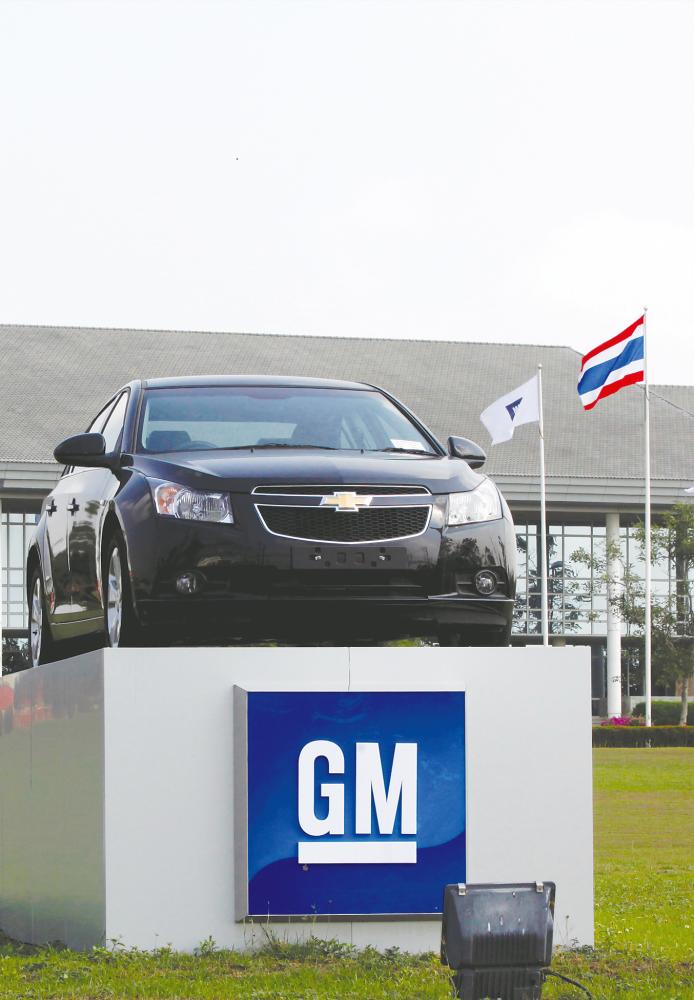NEW YORK/BEIJING: General Motors Co said it would wind down its Australian and New Zealand operations and sell a Thai plant in the latest restructuring of its global business, costing the US auto maker US$1.1 billion (RM4.55 billion).
The moves will accelerate GM’s retreat from unprofitable markets, making it more dependent on the United States, China, Latin America and South Korea, and give up an opening to expand in Southeast Asia.
They come after the company told analysts this month that restructuring GM’s international operations outside of China to produce profit margins in the mid-single digits would represent “a US$2 billion improvement” on two years ago.
GM has forecast a flat profit for 2020 after a difficult 2019, and is facing ballooning interest in electric car rival Tesla Inc.
GM is “focusing on markets where we have the right strategies to drive robust returns, and prioritising global investments that will drive growth in the future of mobility,” especially in electric and autonomous vehicles, GM chair and CEO Mary Barra said in a statement late on Sunday.
The latest changes – a continuation of GM’s retreat from Asia that began in 2015 when it announced it would stop making GM-branded cars in Indonesia – will lead to cash and non-cash charges of US$1.1 billion. Some 600 jobs will be lost in Australia and New Zealand, while GM said about 1,500 jobs would be affected by the sale in Thailand.
Like Britain, Australia and New Zealand are right-hand drive markets. With sales of GM’s Australian Holden brand plummeting, the company could not justify the investment to continue building right-hand drive vehicles, GM president Mark Reuss said.
The move stoked anger in Australia, where GM Holden long ranked among the country’s best selling car companies after the first locally made mass-production car rolled off the assembly line with a Holden badge in 1948.
Australian Prime Minister Scott Morrison said today he was disappointed and angry at the decision, although not surprised. “Australian taxpayers put billions into this multinational company. They let the brand just wither away on their watch,” he told reporters in Melbourne.
Great Wall, one of China’s biggest sport-utility vehicle makers, said it will sell cars from the Thai manufacturing base, which also has an engine plant, in Southeast Asia and Australia as it seeks global sales amid a slowing domestic market.
“There is no choice, if we don’t go global, we will not survive,”, Wei Jianjun, chairman of the Baoding-based automaker, said last year when Great Wall opened a plant in Russia. – Reuters














